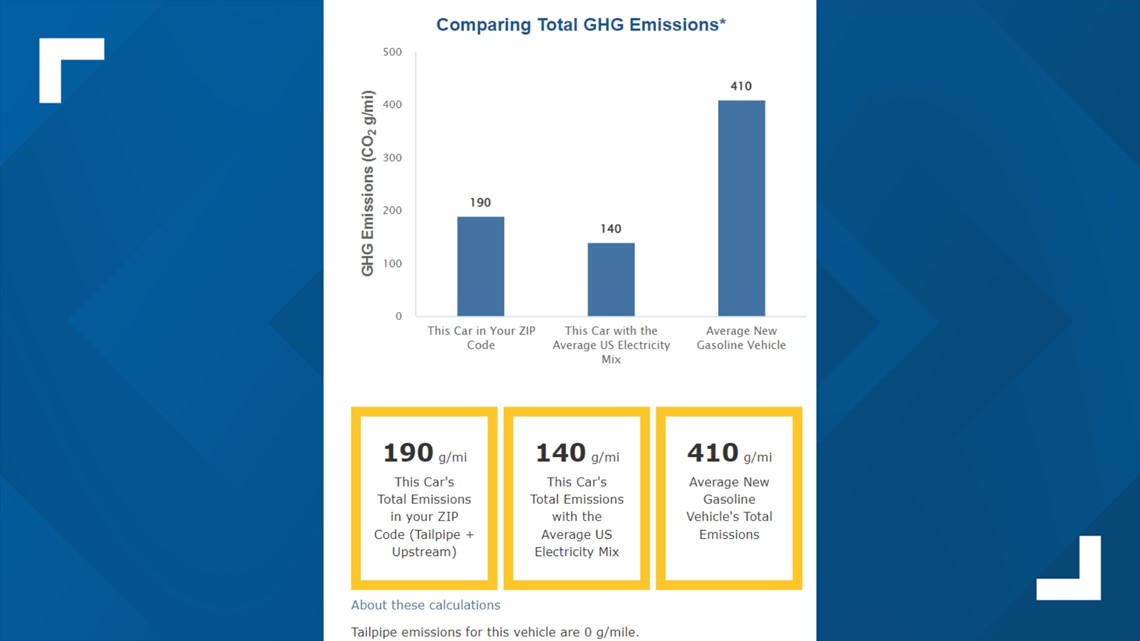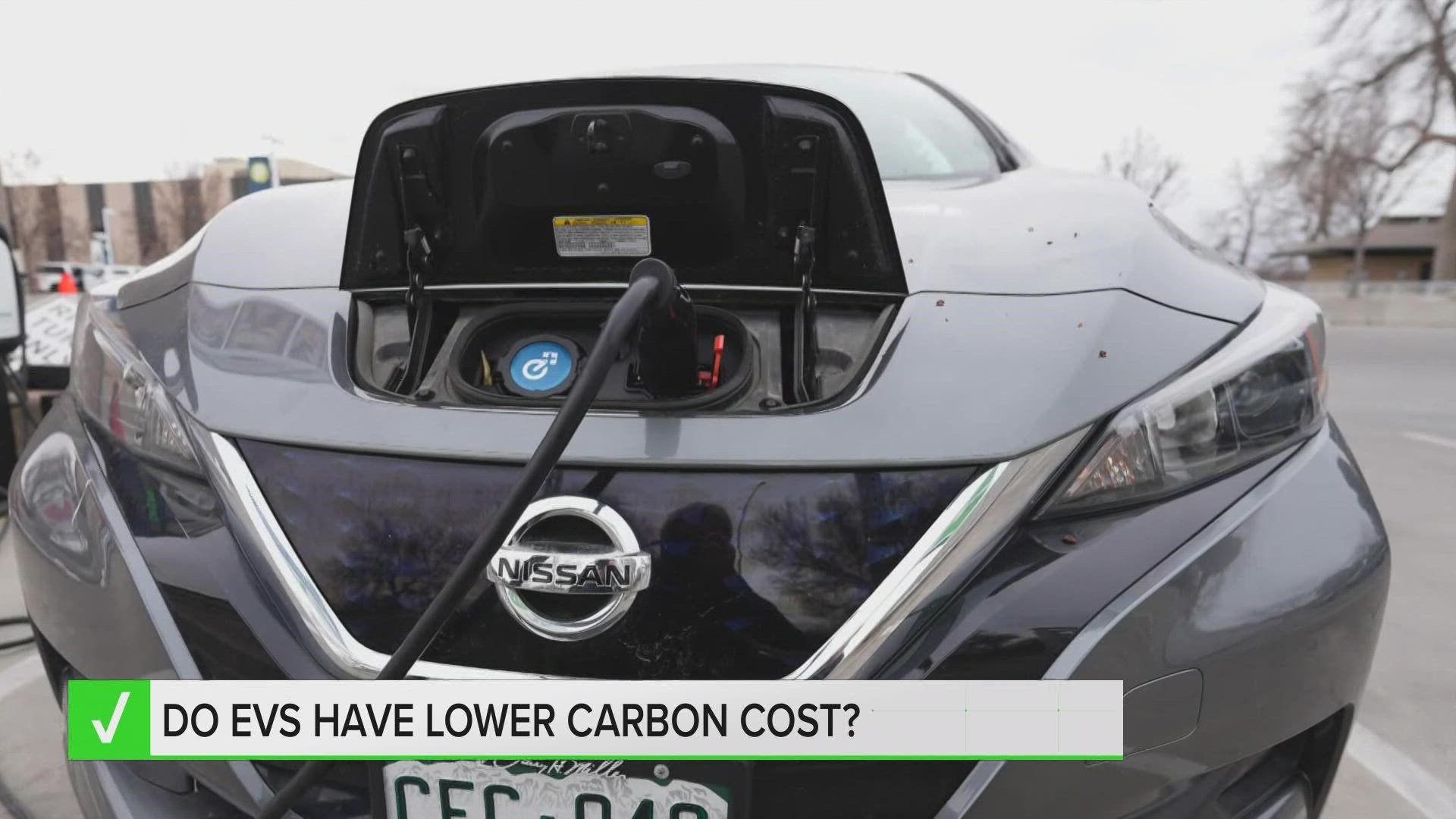MICHIGAN, USA — Electric vehicles promise to transform the way we drive and help lead the green energy charge.
But just how clean are they?
Cleaner than a comparable gas vehicle?
What about certain unexpected costs?
The 13 ON YOUR SIDE Verify Team researched several EV-related viewer questions.
QUESTIONS:
- “Are electric cars using less natural resources for the same amount of miles as gasoline?” --Julie, Howard City
- “Is it true that EVs weigh much more than gas vehicles and therefore their tires wear out 50% quicker?” --Skip
SOURCES:
- US Environmental Protection Agency
- US Department of Energy
- Continental Tires
- Dr. Patrick English--program coordinator, professor of automotive engineering, Ferris State University
RESULT:
- Yes, the total carbon cost associated with electric vehicles is lower than the costs associated with their traditional counterparts, though the volume of natural resources required to produce and operate either class of vehicle was difficult to pinpoint with any level of precision.
- Yes, tires installed on electric vehicles show signs of wear more rapidly than those installed on conventional vehicles, though the difference, according to English, doesn’t approach the 50-percent figure cited in the original question. Major tire manufacturers are engaged in the process of developing alternatives designed to better stand up to the kind of unique wear and tear associated with electrics.
WHAT WE FOUND:
“It is much easier to regulate where we produce our electricity than it is to regulate one hundred or two hundred or 300-thousand vehicles,” English explained. “So, it is--even when our energy is produced in a coal cogeneration plant… we are still dealing with a cleaner option.”
Information found on the EPA website that debunks commonly-held misconceptions supported that assessment.
For its part, the US Department of Energy allows buyers do their own math with its greenhouse gas emissions calculator.
Using a set of sample data that assumed the driver operated a Chevrolet Bolt in the City of Muskegon, the calculator revealed a level of emissions less than half those of a conventional vehicle in the same location.


“The resource cost is going to be a little bit difficult because of what's in the batteries and things,” English said.
What about certain regular maintenance costs, specifically, wear-and-tear on EV tires?
The questioner asked whether electric vehicles weigh more and, as a result, degrade tires at a faster pace.
Leading tire manufacturer Continental said yes, offering up an explanation on its website: “Tires for electric vehicles carry a heavier load and have to withstand high instant torque, leading to higher tire wear.”
Though, English said those factors weren’t likely to produce a significant difference.
“You’re dealing with 900 pounds in just battery,” he said. “A lot of the tire manufacturers are recommending a stiffer tire for the heavier vehicles that holds up fairly well.”
►Make it easy to keep up to date with more stories like this. Download the 13 ON YOUR SIDE app now.
Have a news tip? Email news@13onyourside.com, visit our Facebook page or Twitter. Subscribe to our YouTube channel.

